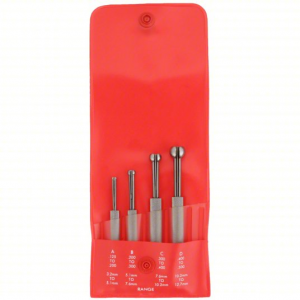I was making a shaft to hold a rotary encoder today. Perfect job for a lathe. So I thought.
To mate the encoder to a pulley, I needed to create a hole for the encoder shaft. When I measured the shaft on the encoder, it appeared to be about 5.97 to 5.98 mm. I tried to sneak up on creating the hole with this dimension, but failed. Two problems:
1) The only way I know that I can measure the hole diameter is with calipers or by test fitting my encoder shaft. Neither work too well. Calipers aren't that accurate and the test fit provides no guidance until the hole is "bigger" than needed. Snap gauges don't seem to go that small.
2) I have boring bars and such. But I don't have anything that could bore anything as small as a 6mm hole. I used an imperial letter "A" drill, but the hole ended up a bit too big. Are there any other tricks that I'm missing?
RR
To mate the encoder to a pulley, I needed to create a hole for the encoder shaft. When I measured the shaft on the encoder, it appeared to be about 5.97 to 5.98 mm. I tried to sneak up on creating the hole with this dimension, but failed. Two problems:
1) The only way I know that I can measure the hole diameter is with calipers or by test fitting my encoder shaft. Neither work too well. Calipers aren't that accurate and the test fit provides no guidance until the hole is "bigger" than needed. Snap gauges don't seem to go that small.
2) I have boring bars and such. But I don't have anything that could bore anything as small as a 6mm hole. I used an imperial letter "A" drill, but the hole ended up a bit too big. Are there any other tricks that I'm missing?
RR


